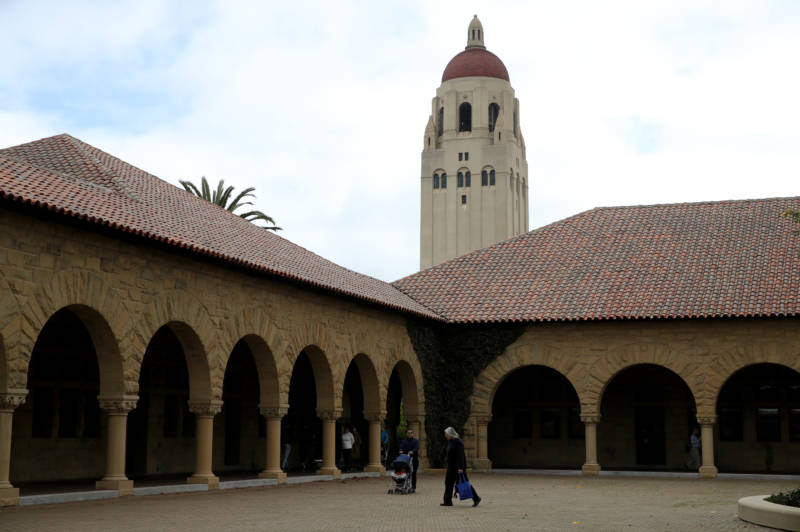Mody predicted university admissions offices, already skeptical of academic and extracurricular resume padding on the part of students, will now vet claims of sports prowess as well. She added dryly that it’s easy enough to check applicants’ Instagram feeds for evidence. “Wait a minute! You don’t play soccer! You haven’t mentioned one thing about soccer in 10 years!”
On the campus of Stanford, one of the elite universities that features in this week’s criminal indictments, you don’t have to travel far to see ambitious construction projects and other evidence of a school that gets a lot of love from a lot of wealthy people.
This is the way a university stays on top of the game, said Anthony Lising Antonio, an associate professor at Stanford, who focuses on access and equity in education. “We have to have shiny buildings. We have to have award-winning faculty. We have to have competitive sports teams. Those things cost a lot of money.”
Antonio says it may be counterintuitive, but children who go to wealthy school districts in places like Silicon Valley really are facing more intense competition trying to get into elite universities. That’s because there are only so many students from each school that will succeed.
Elite schools admit single-digit percentages of the thousands of students that apply each year. The more prestigious the school, the more it can afford to be picky and to select for diversity of all kinds. No university wants to pack its student body with lots of kids from the same ZIP code.
“It’s hand-to-hand combat, right? To get into Stanford. You know, Palo Alto High School might send two students or so, in a given year, to Harvard,” Antonio said.
He said that admissions offices play into the rising competition by looking for students who boast increasingly impossible achievements. “There is no end in that scenario,” Antonio said. “It keeps ramping up.”
Shirley Tokheim, head of the English Department at Palo Alto High School, wrote, “While yes, it does seem especially egregious in its own way, the surfacing of this scandal actually brings to light more about how the college game is just that — a game. A game that the wealthy play very well to set their children up for competitive colleges.”
She added, “I’ve seen for the past decade freaked-out parents who would do anything — anything — to make sure their students have all the advantages. I’ve seen parents who bully teachers over grades, parents who micromanage their students through course selections, teacher selections, etc. So I understand the insanity — I experience and hear about it regularly. It’s all based on fear.”
All of which profoundly depresses Jo Boaler, professor of mathematics education at Stanford and faculty director of the math education website YouCubed. “Chasing grades, and APs, and thinking that is the most important thing. And then they don’t develop a love of learning. And for some of those students, they get to these very prestigious places, and they stop and ask themselves, ‘Why am I here? What am I doing?’ ”
She wants her daughters — one in middle school, one in high school — to feel free to follow their passions, even though they live in a region famous for ambitious parents who want their kids to do as well as they did, or better.
“I hope that this is a moment where we can all stop and talk to our children and try and dispel these ideas that the only route to success and happiness is through these elite colleges,” Boaler said. “I think it’s a really insidious myth.”
The scandal, she said, is a teaching moment for all of us.

